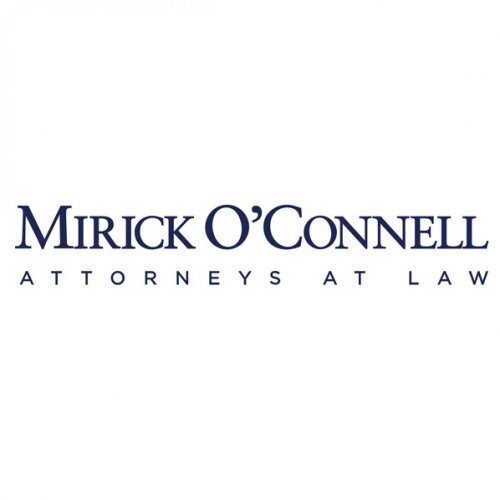Best Debt & Collection Lawyers in Massachusetts
Share your needs with us, get contacted by law firms.
Free. Takes 2 min.
Or refine your search by selecting a city:
List of the best lawyers in Massachusetts, United States
About Debt & Collection Law in Massachusetts, United States
Debt and collection law in Massachusetts governs the ways creditors and debt collectors can pursue outstanding debts from consumers and businesses. These laws are designed to ensure fair treatment for both creditors seeking payment and individuals who owe money. Massachusetts has its own set of debt collection regulations in addition to federal laws, aiming to protect consumers from unfair, deceptive, or abusive collection practices. Understanding the local laws is crucial whether you are dealing with outstanding debts as a consumer or attempting to collect on a debt as a creditor.
Why You May Need a Lawyer
People facing debt and collection issues in Massachusetts often benefit from legal advice for a variety of reasons. If you have been sued by a creditor or debt collector, facing wage garnishment, or believe you are a victim of unfair collection practices, a lawyer can help protect your rights. Businesses and creditors seeking to recover unpaid debts may also need guidance to ensure compliance with Massachusetts laws and to pursue collections effectively without risking legal penalties. Lawyers can also help negotiate settlements, challenge debts that may not be valid, and represent you in court if needed. In short, legal assistance becomes crucial whenever the debt collection process becomes complex or contentious.
Local Laws Overview
Massachusetts debt and collection practices are regulated by both federal and state laws. The federal Fair Debt Collection Practices Act (FDCPA) sets minimum standards for debt collection nationwide, while Massachusetts General Laws Chapter 93 and Chapter 93A provide consumers with additional protections and remedies against unfair or harassing collection efforts. State regulations, administered by the Massachusetts Attorney General’s Office and Division of Banks, include licensing requirements for debt collectors and detailed rules about communication, interest charges, and litigation. Notably, Massachusetts prohibits some collection activities that are allowed in other states, such as certain types of public shaming or frequent contact at unreasonable hours. Understanding these local nuances is important for anyone involved in debt collection in Massachusetts.
Frequently Asked Questions
What should I do if I am contacted by a debt collector in Massachusetts?
First, do not ignore the communication. Verify the legitimacy of the debt and the collector. You can request written validation of the debt, which the collector is required to provide. Consider consulting with an attorney, especially if you are unsure about the debt or your rights.
Are debt collectors required to be licensed in Massachusetts?
Yes, with certain exceptions, third-party debt collectors must be licensed by the Massachusetts Division of Banks to collect debts from consumers in the state.
How much can a debt collector contact me?
Under Massachusetts law, a collector cannot call you more than twice in a seven-day period about the same debt. There are restrictions on the time of day and methods of contact as well.
Can my wages be garnished for unpaid consumer debt?
Wage garnishment is only possible if a creditor obtains a court judgment against you. Even then, Massachusetts law limits the percentage of wages that can be garnished and certain types of income are exempt.
What is the statute of limitations for debt collection in Massachusetts?
For most consumer debts, the statute of limitations is six years. After this period, a collector generally cannot sue you to collect a debt, although they may still attempt to collect informally.
What are my rights if I dispute a debt?
You have the right to dispute a debt in writing within 30 days of first being contacted. The collector must then stop collection efforts until they provide written verification of the debt.
What qualifies as an unfair or deceptive debt collection practice?
This includes threats of violence, unauthorized disclosure of your debt to others, repeated or harassing phone calls, false statements, and attempts to collect more than you owe. Both federal and state laws prohibit these practices.
Can a debt collector take me to court for unpaid debts?
Yes, collectors can file a lawsuit in court to obtain a judgment against you. If you are served with court papers, do not ignore them-seek legal advice immediately.
Does Massachusetts offer any programs for debt relief or settlement?
There are non-profit credit counseling agencies, debt management programs, and sometimes court-approved settlement options. A lawyer or credit counselor can help assess which option may be best for you.
What if I am being harassed by a debt collector?
You should document all communications and file a complaint with the Massachusetts Attorney General’s Office or the Federal Consumer Financial Protection Bureau. Consider seeking legal help to protect your rights and potentially recover damages.
Additional Resources
- Massachusetts Attorney General’s Office Consumer Advocacy and Response Division - Massachusetts Division of Banks - Federal Consumer Financial Protection Bureau (CFPB) - National Foundation for Credit Counseling - Legal Services Corporation of Massachusetts - Local Bar Association Lawyer Referral Services - National Consumer Law Center - United States Department of Justice for bankruptcy information
Next Steps
If you are facing debt collection issues in Massachusetts, begin by gathering all documentation related to your debts and recent communications from collectors. Review your rights using the resources listed above. Consult a qualified attorney who specializes in debt and collection matters for advice tailored to your situation. You can contact local legal aid organizations if you cannot afford a private attorney. Do not ignore court notices or lawsuits. Early action helps protect your interests, whether you are working to resolve your debt, fighting an unfair collection effort, or seeking to recover debts owed to your business.
Lawzana helps you find the best lawyers and law firms in Massachusetts through a curated and pre-screened list of qualified legal professionals. Our platform offers rankings and detailed profiles of attorneys and law firms, allowing you to compare based on practice areas, including Debt & Collection, experience, and client feedback.
Each profile includes a description of the firm's areas of practice, client reviews, team members and partners, year of establishment, spoken languages, office locations, contact information, social media presence, and any published articles or resources. Most firms on our platform speak English and are experienced in both local and international legal matters.
Get a quote from top-rated law firms in Massachusetts, United States — quickly, securely, and without unnecessary hassle.
Disclaimer:
The information provided on this page is for general informational purposes only and does not constitute legal advice. While we strive to ensure the accuracy and relevance of the content, legal information may change over time, and interpretations of the law can vary. You should always consult with a qualified legal professional for advice specific to your situation.
We disclaim all liability for actions taken or not taken based on the content of this page. If you believe any information is incorrect or outdated, please contact us, and we will review and update it where appropriate.
Browse debt & collection law firms by city in Massachusetts
Refine your search by selecting a city.










